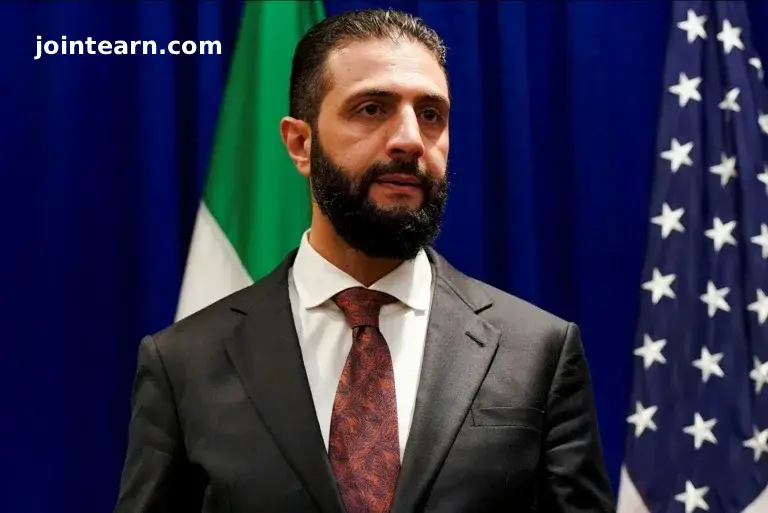
Washington D.C., November 7, 2025 – In an unprecedented diplomatic move, Syrian President Ahmed al-Sharaa, a former jihadist, is set to become the first Syrian leader to visit the White House officially. The historic visit marks a dramatic turn in Syria’s post-war trajectory, as Sharaa seeks to end his country’s long-standing international isolation following years of conflict and sanctions.
Sharaa, whose rebel forces ousted longtime leader Bashar al-Assad last year, will meet with US President Donald Trump to discuss Syria’s reintegration into the international community and potential cooperation in the fight against the Islamic State (IS).
Syria’s Reintegration into Global Diplomacy
According to US envoy to Syria Tom Barrack, Sharaa is expected to “hopefully” sign an agreement for Syria to join the US-led anti-IS coalition, signaling a major shift in Washington’s approach toward the country. In support of this initiative, the United States plans to establish a military base near Damascus to coordinate humanitarian aid and monitor developments along the Israel-Syria border.
Just days before the visit, the United Nations Security Council voted to lift sanctions on Sharaa, granting him freedom to travel internationally without prior exemptions. The resolution, sponsored by the US, praised Syria’s new government for working toward commitments in counter-terrorism and narcotics control.
Sharaa previously met Trump in Riyadh in May during the US president’s regional tour, marking the start of a new chapter in Syria-US relations.
Breaking from a Violent Past
Formerly affiliated with Al-Qaeda, Sharaa’s group, Hayat Tahrir al-Sham (HTS), was officially removed from the US list of terrorist organizations as recently as July 2025. Since assuming power, Sharaa has worked to present a moderate image, signaling a break from Syria’s violent history and aiming to build legitimacy both domestically and internationally.
Historian Sami Moubayed described the White House visit as “the first in modern Syrian history for a Syrian president,” emphasizing its symbolic importance. Analyst Nick Heras noted that Trump’s invitation sends a clear message that Sharaa is “no longer considered a terrorist” and that he is viewed as a pragmatic, cooperative leader.
Economic and Reconstruction Goals
A central aim of Sharaa’s visit is to secure financial support for Syria’s post-war reconstruction. The World Bank estimates the cost of rebuilding Syria at $216 billion, reflecting the extensive damage from 13 years of civil war. Sharaa seeks US endorsement and funds to not only rebuild infrastructure but also consolidate his authority across the country.
Security and Regional Considerations
Diplomatic sources indicate that the US will establish a military presence at Mazzeh Airport near Damascus to oversee humanitarian operations and regional security, particularly concerning Israel. Negotiations between Syria and Israel, which technically remain at war, will also be a key topic during the White House discussions.
The majority of US forces in Syria are currently based in areas controlled by Kurdish-led Syrian Democratic Forces (SDF), who played a pivotal role in defeating IS in 2019. Plans for integrating the SDF into Syria’s national military are also expected to be discussed.
Sharaa has previously expressed hope for a security deal with Israel but stopped short of recognition, reflecting the delicate balance required in ongoing negotiations. Analysts suggest that the US vision for Syria includes a strategic role for Israel, shaping regional security dynamics for years to come.
Historic Implications
Sharaa’s White House visit represents a turning point in US-Middle East policy and Syria’s post-conflict trajectory. With sanctions lifted and the possibility of joining the international anti-IS coalition, Syria’s former pariah state is stepping onto the global stage in an unprecedented way.
As the Middle East watches closely, Sharaa’s meetings in Washington will be pivotal in determining Syria’s path toward reconstruction, stability, and normalized international relations.


Leave a Reply